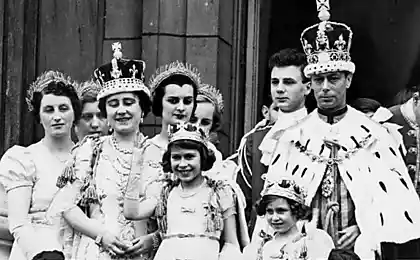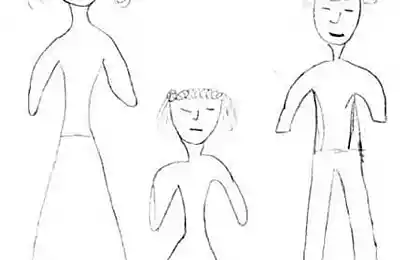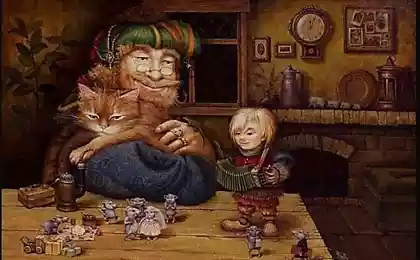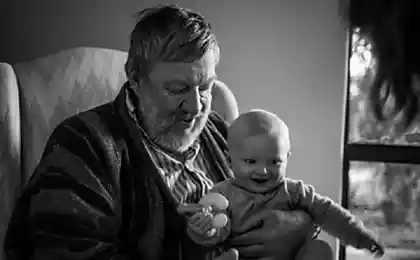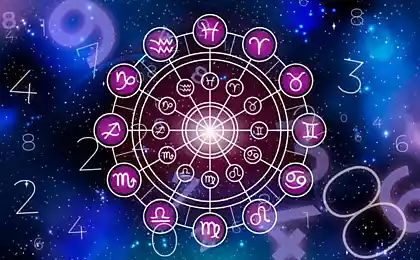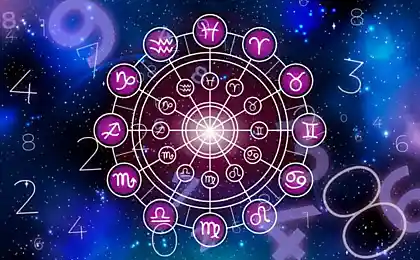218
How to count and list all relatives in the family
Names of relatives can easily confuse even the most talented polymaths. Try to guess who's in the middle of everything. crowd A brother-in-law and a sister-in-law. It is not necessary to memorize all these names by heart, but at least to understand the topic minimally is definitely worth it. We will help you remember all the names of relatives quickly and easily. Take note.

Modern realities do not involve living a large number of people under one roof. What can you say about our ancestors? There were many children in the family before. Then they all grew up, married, family. replenished with new relatives And you had to figure it out. Agree, it is not very convenient to constantly gush “brother of my wife” or “sister of my uncle’s wife”.

So, after the wedding, as we already know, a couple of new spouses become husband and wife. The parents of the wife for the groom become mother-in-law and father-in-law, and the parents of the groom for the bride - father-in-law and mother-in-law. It is quite simple, because these names of relatives widely used And to this day.
Let’s say that each spouse brother and sister. The brother of the wife is the brother-in-law and his wife is the daughter-in-law. But the situation with the wife’s sister and her husband is much more clear. The new head of the family may call the wife's sister sister sister-in-law, and her husband - in-law.
What about the groom's side? It's also pretty easy so far. A husband's brother to a young wife is a brother-in-law. And his wife is also a daughter-in-law. A husband's sister is a sister-in-law, and a sister's husband is a son-in-law. That's it. The next couple of relatives.

Now it is not so common, but it is still quite popular for parents to call each other a matchmaker and a svatya. Swat is the father of one of the newlyweds in relation to the parents of another newlywed, and swatya is the mother of one of the newlyweds. Sounds nice and respectful enough. Moreover, there was also a separate name for women whose husbands were brothers. Such wives were called yatrovkas.

The old names add some interesting information. Do you know what your uncle was called in the old days? An uncle on the paternal side was called nothing but a sleeve, and an uncle on the mother’s side was called a wuy or a howl. Moreover, the godparents of the children of the family were each other's cronies. And now this name is quite popular, although not everyone knows about it. So you can safely call the godfather of your child Kum, and the godmother – only pocket-bagNo other way.

Old names of relatives now may seem a little funny or even incomprehensible. But often they were formed from the one who performed what duties in the family. For example, his brother’s wife was called a brother. The uncle’s wife was called grandfather or grandfather. But the sisters or brothers of grandparents (that is, cousins of grandparents) were called A great aunt or a great uncle.

Probably more than any cousin name. He could be called a brother, a brother, a brother or a brother, as well as brothers. It’s easy to get confused, but it was once a perfectly normal practice. By the way, perhaps the most difficult option to remember is nephewhood from my aunt's side. The boy was called a daughter, and the girl was called a daughter.
Today, this is rarely practiced anywhere, but if in the old days someone looked after a non-native child, then also deserved to be called “uncle or mother.” If a woman fed another child with her milk, then such a child could be a milk brother to the native children of her milk mother.
In addition, once the husband's wife was the father of her husband - a daughter-in-law. Not a daughter-in-law, but a daughter-in-law. But if the new husband of the daughter lived with her family after the wedding, it was called such a man primac. It should be said that the name is flatteryIt is only once again emphasized that this man for some reason can not take his wife to his home.
779682
Now you've figured it out. names of relatives? It is easy enough, it is important not to get confused in the memories. Do you have a big family? Do you use these names in your everyday life? Share your experience in the comments.

Modern realities do not involve living a large number of people under one roof. What can you say about our ancestors? There were many children in the family before. Then they all grew up, married, family. replenished with new relatives And you had to figure it out. Agree, it is not very convenient to constantly gush “brother of my wife” or “sister of my uncle’s wife”.

So, after the wedding, as we already know, a couple of new spouses become husband and wife. The parents of the wife for the groom become mother-in-law and father-in-law, and the parents of the groom for the bride - father-in-law and mother-in-law. It is quite simple, because these names of relatives widely used And to this day.
Let’s say that each spouse brother and sister. The brother of the wife is the brother-in-law and his wife is the daughter-in-law. But the situation with the wife’s sister and her husband is much more clear. The new head of the family may call the wife's sister sister sister-in-law, and her husband - in-law.
What about the groom's side? It's also pretty easy so far. A husband's brother to a young wife is a brother-in-law. And his wife is also a daughter-in-law. A husband's sister is a sister-in-law, and a sister's husband is a son-in-law. That's it. The next couple of relatives.

Now it is not so common, but it is still quite popular for parents to call each other a matchmaker and a svatya. Swat is the father of one of the newlyweds in relation to the parents of another newlywed, and swatya is the mother of one of the newlyweds. Sounds nice and respectful enough. Moreover, there was also a separate name for women whose husbands were brothers. Such wives were called yatrovkas.

The old names add some interesting information. Do you know what your uncle was called in the old days? An uncle on the paternal side was called nothing but a sleeve, and an uncle on the mother’s side was called a wuy or a howl. Moreover, the godparents of the children of the family were each other's cronies. And now this name is quite popular, although not everyone knows about it. So you can safely call the godfather of your child Kum, and the godmother – only pocket-bagNo other way.

Old names of relatives now may seem a little funny or even incomprehensible. But often they were formed from the one who performed what duties in the family. For example, his brother’s wife was called a brother. The uncle’s wife was called grandfather or grandfather. But the sisters or brothers of grandparents (that is, cousins of grandparents) were called A great aunt or a great uncle.

Probably more than any cousin name. He could be called a brother, a brother, a brother or a brother, as well as brothers. It’s easy to get confused, but it was once a perfectly normal practice. By the way, perhaps the most difficult option to remember is nephewhood from my aunt's side. The boy was called a daughter, and the girl was called a daughter.
Today, this is rarely practiced anywhere, but if in the old days someone looked after a non-native child, then also deserved to be called “uncle or mother.” If a woman fed another child with her milk, then such a child could be a milk brother to the native children of her milk mother.
In addition, once the husband's wife was the father of her husband - a daughter-in-law. Not a daughter-in-law, but a daughter-in-law. But if the new husband of the daughter lived with her family after the wedding, it was called such a man primac. It should be said that the name is flatteryIt is only once again emphasized that this man for some reason can not take his wife to his home.
779682
Now you've figured it out. names of relatives? It is easy enough, it is important not to get confused in the memories. Do you have a big family? Do you use these names in your everyday life? Share your experience in the comments.
What women are at risk of becoming intolerable old women
On Saturday afternoon, my mother-in-law came home, threw a bag of minced meat on the table and went back to work.

